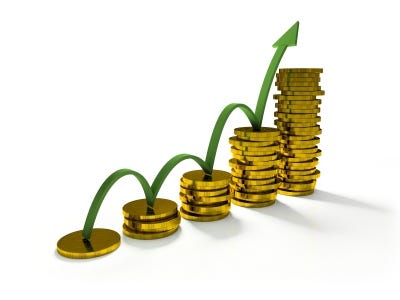In a world where hustle culture reigns supreme and the stock market fluctuates at every turn, the concept of doing nothing as an investment strategy may seem counterintuitive. Yet, there is a compelling argument to be made for the power of inaction when it comes to navigating financial markets and securing long-term wealth. While it may fly in the face of conventional wisdom, there are several reasons why doing nothing could indeed be the best investment strategy.
1. Avoiding Emotional Decision Making: One of the primary reasons for investment losses is emotional decision-making. When markets are volatile, it's easy to succumb to fear or greed, leading investors to make impulsive decisions that can harm their portfolios. By adopting a strategy of doing nothing, investors can sidestep these emotional pitfalls and maintain a steady course regardless of short-term market fluctuations.
2. Minimizing Transaction Costs: Every trade incurs transaction costs, whether it's brokerage fees, taxes, or bid-ask spreads. Frequent buying and selling can eat into investment returns over time, especially for individual investors with smaller portfolios. By refraining from constant trading and maintaining a long-term perspective, investors can minimize these costs and preserve more of their capital for growth.
3. Harnessing the Power of Compound Interest: Albert Einstein famously referred to compound interest as the eighth wonder of the world. The magic of compounding lies in its ability to generate exponential growth over time. By leaving investments untouched and allowing returns to compound, investors can benefit from the snowball effect, where gains accumulate upon themselves. This passive approach to investing can lead to significant wealth accumulation over the long haul.
4. Time in the Market, Not Timing the Market: Trying to time the market – predicting when to buy low and sell high – is a notoriously difficult endeavor. Countless studies have shown that even professional investors struggle to consistently outperform the market through market timing. Instead of attempting to beat the market through timing, investors are better served by staying invested for the long term. By remaining fully invested through market cycles, investors capture the long-term upward trajectory of the market, rather than trying to outguess short-term movements.
5. Focus on What Matters: In the frenzy of daily market fluctuations and financial news cycles, it's easy to lose sight of the fundamentals that drive long-term investment returns. By adopting a strategy of doing nothing, investors can focus on the underlying fundamentals of their investments – such as central bank liquidity, earnings growth, competitive positioning, dividend yields, etc. – rather than getting caught up in market noise.
6. Reducing Stress and Anxiety: Constantly monitoring investment portfolios and making frequent trading decisions can take a toll on investors' mental and emotional well-being. The stress and anxiety associated with active trading can lead to burnout and decision fatigue, impairing judgment and leading to suboptimal outcomes. In contrast, a passive approach based on doing nothing can promote peace of mind and emotional stability, allowing investors to maintain discipline and stay the course through market ups and downs.
Of course, adopting a strategy of doing nothing doesn't mean ignoring your investments entirely. It involves carefully selecting a diversified portfolio aligned with your long-term financial goals, periodically rebalancing to maintain the desired asset allocation, and staying informed about economic and market developments that may warrant adjustments to your strategy. However, it does mean resisting the urge to react impulsively to short-term market movements and instead focusing on the factors within your control, such as saving consistently and staying invested for the long term.
While the idea of doing nothing may seem passive or lazy on the surface, it can actually be a prudent and effective investment strategy. By avoiding emotional decision-making, minimizing transaction costs, harnessing the power of compound interest, focusing on long-term fundamentals and reducing stress and anxiety, investors can position themselves for success over the long haul. In a world where the pace of change is ever-accelerating, sometimes the best course of action is simply to do nothing.
Enjoy and be safe.
p.s. Let your winners run; sell you losers.







